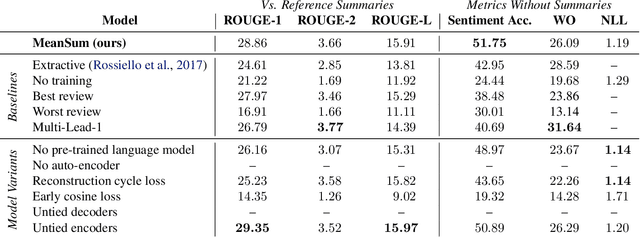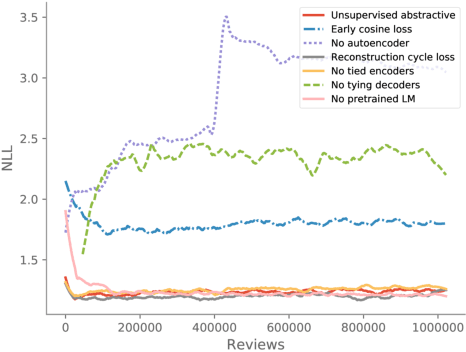Unsupervised Neural Multi-document Abstractive Summarization
Paper and Code
Oct 12, 2018



Abstractive summarization has been studied using neural sequence transduction methods with datasets of large, paired document-summary examples. However, such datasets are rare and the models trained from them do not generalize to other domains. Recently, some progress has been made in learning sequence-to-sequence mappings with only unpaired examples. In our work, we consider the setting where there are only documents and no summaries provided and propose an end-to-end, neural model architecture to perform unsupervised abstractive summarization. Our proposed model consists of an auto-encoder trained so that the mean of the representations of the input documents decodes to a reasonable summary. We consider variants of the proposed architecture and perform an ablation study to show the importance of specific components. We apply our model to the summarization of business and product reviews and show that the generated summaries are fluent, show relevancy in terms of word-overlap, representative of the average sentiment of the input documents, and are highly abstractive compared to baselines.
 Add to Chrome
Add to Chrome Add to Firefox
Add to Firefox Add to Edge
Add to Edge